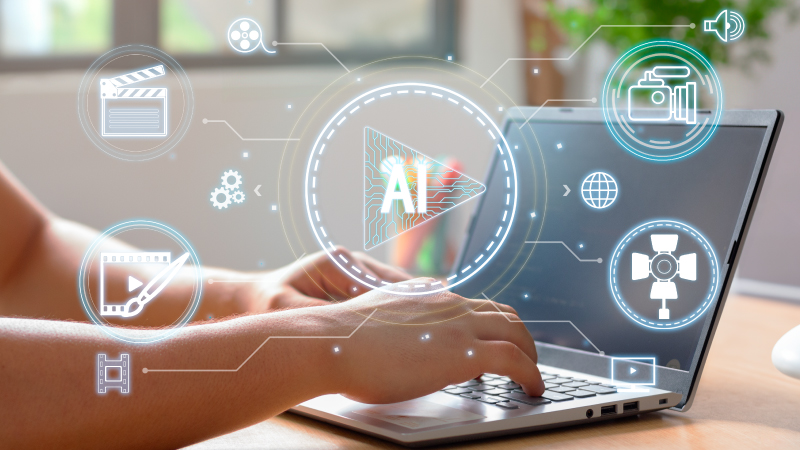How is AI going to change everything?
Let’s get straight to the point: AI is not just here to stay; it’s here to take over. If you thought remote work was the ultimate game-changer, wait until you see what’s coming. AI is automating boring and repetitive tasks with astonishing ease. Data entry? Done. Inventory management? Check. And it’s not just stopping there; it’s moving into more complex jobs like financial analysis and medicine, doing things that once required years of human study and experience. What was once exclusive human territory is now being invaded by machines that don’t get tired, don’t make human errors, and work at speeds we can’t match. Sound scary? Maybe, but it’s also an opportunity to redefine what we consider work and how we can use our time more effectively and satisfyingly.
Remote Work and the Metaverse: The New Office
The pandemic showed us that working from home is not only possible but can be quite productive. But let’s not stop there. The metaverse is about to change the game radically. Virtual meeting rooms? Yes, please. Collaborations in digital offices? Absolutely. This is not just an improvement in flexibility and productivity; it’s a revolution in how we experience our work environment. The boundaries between work and personal life blur, allowing for a more fluid and natural integration of our work and personal responsibilities. Imagine being able to teleport to a virtual office with a click, interact with your colleagues in a three-dimensional environment, and return to your living room without even leaving the couch. That’s the promise of the metaverse, and it’s closer than you think.
New Opportunities: Not All Is Lost!
It’s not all about automation and unemployment. AI is also creating new opportunities. Jobs that require creativity, empathy, and critical thinking will still be essential. And new roles like AI developers and data scientists are booming. Smart companies will invest in training their employees, preparing them for these emerging roles and giving them a competitive edge in the future job market. This is a call to action for all of us: we must be willing to learn and adapt.
AI can do a lot, but it still needs human minds to guide and apply it effectively and ethically. The combination of advanced technology and human skills will be the real driver of progress in this new era.
Technological Unemployment: The New Fear?
Yes, technological unemployment is a real concern. History tells us that unemployment can be devastating for mental and physical health. But what if we’re all unemployed due to AI? Perhaps the psychological impact won’t be as negative. With a universal basic income, we could maintain our well-being and find new ways to structure and enjoy our free time.
Thinking about the mid-term future, the key will be to eliminate the stigma associated with unemployment. Instead of seeing it as a personal failure, we should view it as an opportunity to reinvent ourselves, learn new skills, and engage in activities we are truly passionate about. AI is forcing us to rethink the concept of work, and that doesn’t have to be a bad thing.
Resilience and Adaptability: Keys to the Future
Resilience and adaptability will be the most valuable skills. Workers will need to learn continuously and adapt to new technologies. Companies will need to foster a culture of innovation and flexibility to attract and retain talent. AI can help optimize hiring and professional development processes, but we must ensure that these technologies are used ethically and equitably.
It’s not just about surviving but thriving in a world where change is the only constant. Those who can adapt quickly and learn continuously will lead the way. This new era demands that we be agile, curious, and always willing to evolve.
Preparing for the Future
AI is here to change everything, from the way we work to the way we live. The key will be to prepare and adapt to these changes. Companies and workers must be willing to learn, innovate, and collaborate to make the most of the opportunities AI offers. With a strategic vision and a proactive approach, we can build a more prosperous and sustainable future of work, where technology and humanity coexist in harmony.
It’s not just about surviving but finding ways to thrive and find new meaning in our work and personal lives. The future of work can be bright, as long as we are prepared to embrace change and seize the opportunities AI presents to us.










